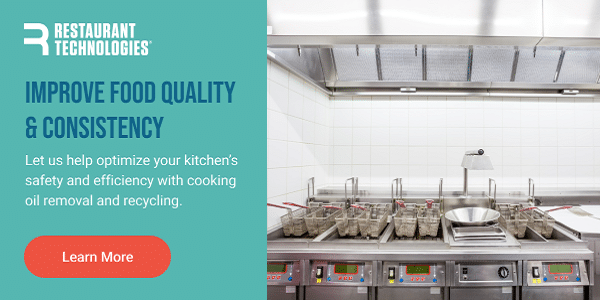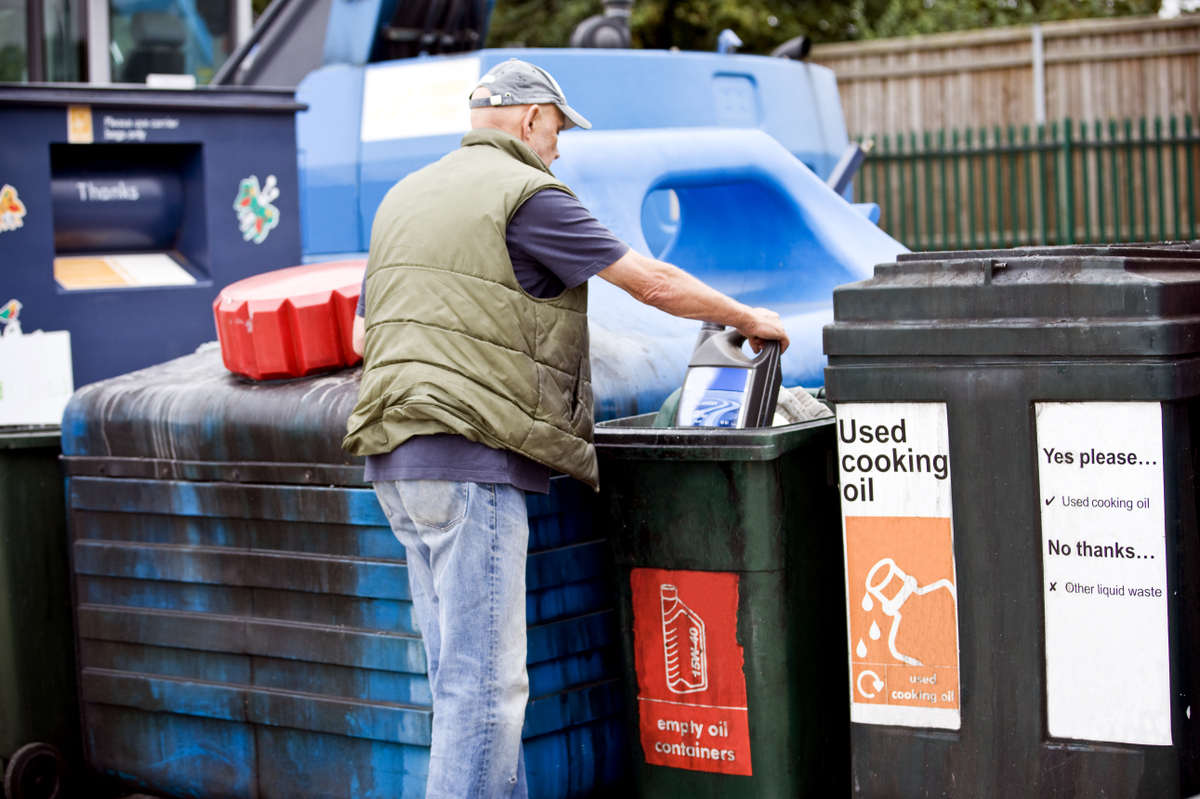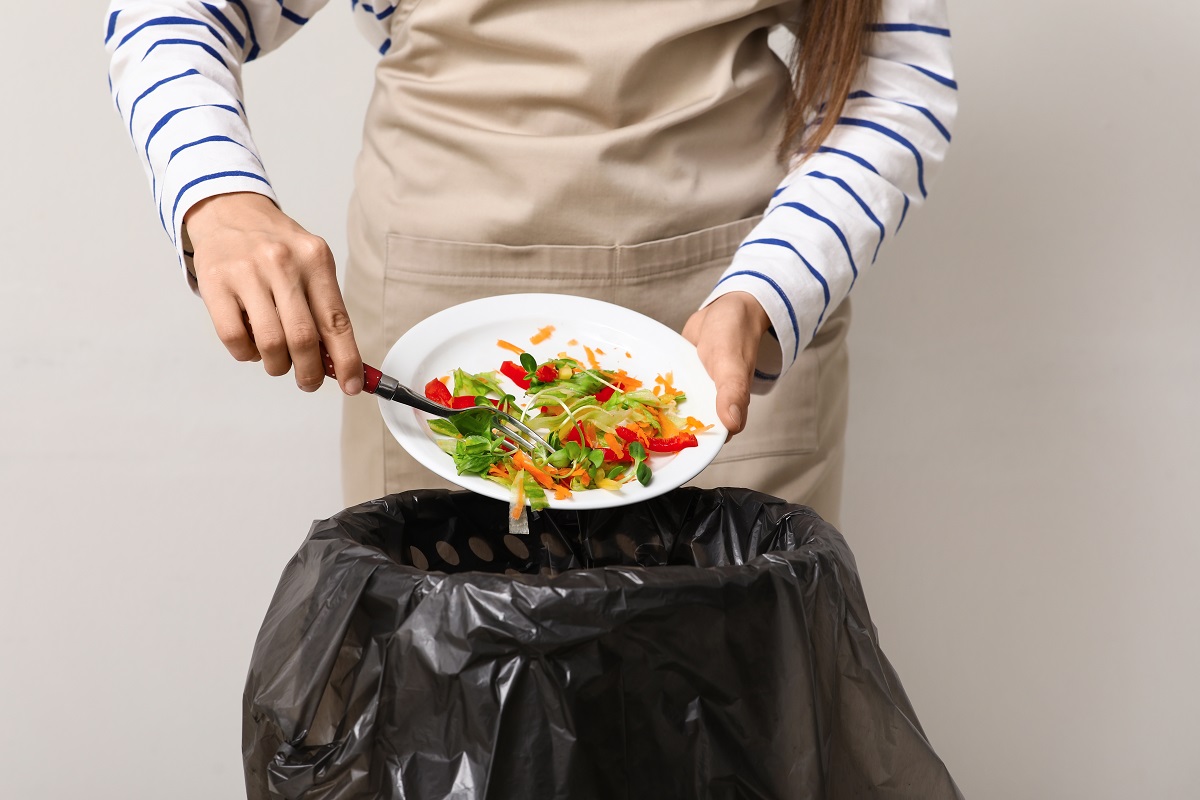Those in the restaurant business are well aware that recycling has become non-negotiable, if not an ethical imperative. Not only does recycling curb waste costs and contribute to a more sustainable environment, but it also boosts public perception of your restaurant, which is key to bringing in more customers.1,2
All of which is to say you probably already have a solid recycling program in place. But a question may be nagging at you: Can you recycle oil bottles?
In short, it depends. Read on as we slip into the topic so that you can rest assured you’re doing everything you can for the environment.
Recycling Oil Containers 101
Whether you have a hotel restaurant or a fast food franchise, you know that food service establishments run through a large amount of cooking oil. You also know that restaurant oil recycling is a must for dozens of items that go through your kitchen and dining room, not only for the reasons listed above but also because doing so3:
- Reduces waste in landfills and cuts down on greenhouse gasses
- Demonstrates your part in fighting climate change
- Protects your customers by improving your establishment’s overall hygiene and safety
Chances are, you know precisely what to do with beverage containers, cardboard, and the like. But what about oil container recycling?
Can Oil Glass Bottles Be Recycled?
Purchasing and/or keeping your oil in glass bottles may be a wise choice for some establishments, primarily because the glass barrier prevents oxidation and preserves the oil’s quality.4 That said, can you recycle olive oil bottles?
Whether you can recycle these glass bottles depends on where you live: Many large cities accept glass bottles in their recycling programs and even provide them as part of their curbside collection.5 That said, only 81% of curbside recycling programs in the country accept glass.6 Your best bet is to check with your local recycling program—and if they don’t, we have a solution (more on that, soon).
Can Oil Plastic Bottles Be Recycled?
Yes, plastic containers and bottles can be recycled and are usually included in curbside collection programs.7 Again, though, it’s important to verify your community’s recycling rules; some may not agree to receive certain plastics.
If it’s a go, ensure you adhere to the instructions outlined below.
Proper Disposal and Recycling Practices
If your town or city does accept glass and plastic, be sure to follow these guidelines:
- Cleanse thoroughly – Many recyclable items must be cleaned before they head out your kitchen doors, from plastic containers of yogurt to the dredges in a can of Coke. But this is especially true of any container that holds oil. Oil is what’s known as hydrophobic, meaning it repels water.8 As such, a recycling plant can’t rinse it off and your container may ultimately end up as trash in a landfill.
- Absorb excess oil – Leave your glass oil container upside down and sop up what’s left in the bottle with a touch of flour. Follow this by rinsing with hot, soapy water.
Lastly, confirm whether you should remove caps from your oil containers (if it applies). Some programs insist on their removal, as it may damage their recycling machinery.

Innovative Recycling Solutions from Restaurant Technologies
The answer to “Can you recycle oil bottles?” might not require that much research, but it can nonetheless be a drain on your time and energy, and anyone who works in the restaurant industry knows they need both in spades.
Fortunately, you can put recycled oil container concerns to rest with more innovative solutions. Restaurant Technologies provides food service establishments with complete cooking oil management, from bulk oil delivery, filtering, and monitoring to proper disposal and oil recycling. In turn, you may:
- Boost employee morale – Whether your back-of-house staff is tasked with taking specialized items to recycling or must haul old oil out back, both can be tiresome (and time-consuming) obligations. Shifting to an automated system may, in the end, bolster job satisfaction and improve employee retention.
- Improve safety – Traditional methods of oil disposal introduce an increased risk of burns, slips, and falls. In fact, an estimated 30% of slipping accidents in commercial kitchens are caused by grease, while another 40% are caused by oil. Total oil management can decrease accidents in your back-of-house operations and lead to a safer, more orderly kitchen.
- Increase overall efficiency – Total oil management handles many of the most burdensome responsibilities in a commercial kitchen. Indeed, Church’s Kitchen found that installing our system resulted in a noticeable reduction in oil usage, even within the first six months.
Enhance Sustainability in Your Operations with Restaurant Technologies
Recycling is essential across the board but it’s particularly important in restaurants, which regularly use substantial amounts of recyclable items, including oil containers.
Restaurant Technologies simplifies the process with our suite of back-of-house solutions. Whether you’d like bulk oil delivery, oil disposal, or automated hood cleaning, we can help you do your part in streamlining your kitchen and protecting the environment.
To enhance your food service operations further, discover strategies to prevent used cooking oil theft, understand how much used cooking oil is worth, and explore how to run a cafeteria—if that’s your business.
Sources:
- Wisconsin Department of Natural Resources. Recycling and waste reduction in the restaurant business. https://apps.dnr.wi.gov/doclink/waext/WA1536.pdf
- McKinsey & Company. Consumers care about sustainability—and back it up with their wallets. https://www.mckinsey.com/industries/consumer-packaged-goods/our-insights/consumers-care-about-sustainability-and-back-it-up-with-their-wallets
- Unilever Food Solutions. The importance of kitchen waste management in restaurants. https://www.unileverfoodsolutions.us/chef-inspiration/food-safety/the-importance-of-kitchen-waste-management-in-restaurants.html
- Real Simple. How to properly store cooking oil, according to experts. https://www.realsimple.com/food-recipes/shopping-storing/food/how-to-store-cooking-oil
- Earth 911. How to recycle glass bottles and jars. https://earth911.com/recycling-guide/how-to-recycle-glass-bottles-jars
- Route Fifty. Cities and towns are abandoning glass recycling. Can it be saved? https://www.route-fifty.com/infrastructure/2020/02/glass-recycling-expensive-can-it-be-saved/163148
- Earth 911. How to recycle plastic bottles & jugs. https://earth911.com/recycling-guide/how-to-recycle-plastic-jugs-bottles
- Scientific American. Mix it up with oil and water. https://www.scientificamerican.com/article/mix-it-up-with-oil-and-water






